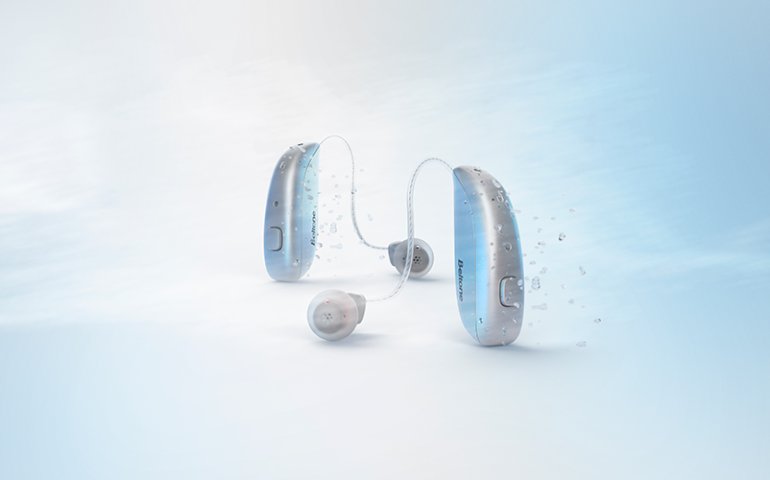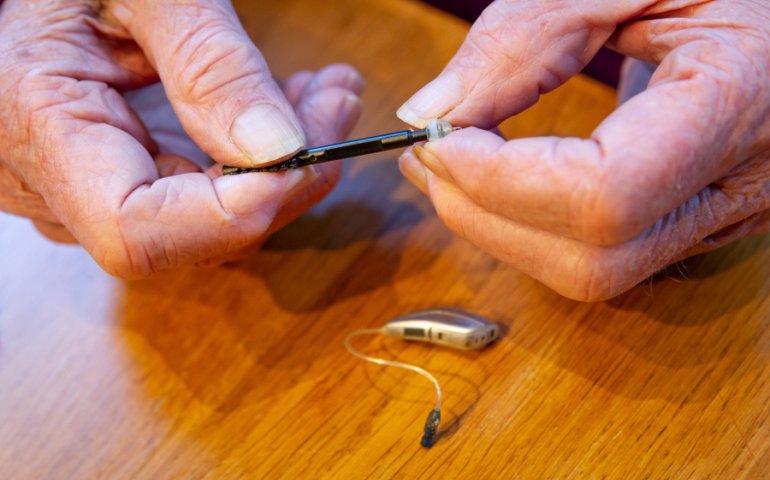The Link Between Vitamin D and Tinnitus
Tinnitus, a condition characterized by ringing or buzzing in the ears, can significantly impact your quality of life. This common condition has a wide range of causes. One that has become known recently is the link between tinnitus and vitamin deficiencies.
Recent studies have revealed a connection between hearing health and vitamin D deficiencies. In this blog, we explore the causes of tinnitus and how vitamins and minerals affect hearing, and what you can do to help improve your hearing health.
Understanding the Causes of Tinnitus
Proper levels of vitamins and minerals are crucial for maintaining your physical health, and your hearing is no different. Nutritional deficiencies can affect the delicate structures of the ear, damaging the ear canal or worsening symptoms. A few key vitamins and minerals include vitamin B12, folic acid, vitamin A, and vitamin D.
Insufficient magnesium levels have also led to an increased risk of tinnitus symptoms. Try to eat more magnesium-rich foods like nuts, legumes, leafy greens, and whole grains. Zinc also plays a role in auditory function. Include zinc-rich foods like oysters, beef, pumpkin seeds, and lentils in your diet.
The Role of Vitamins and Minerals in Hearing Health
Proper levels of vitamins and minerals are crucial for maintaining optimal hearing health. Nutritional deficiencies can affect the delicate structures of the ear. They can also contribute to the development or worsening of tinnitus. Here are a few key vitamins and minerals involved. Vitamin B12 deficiency can lead to tinnitus symptoms. You need to ensure adequate intake of foods rich in vitamin B12. These include fish, meat, dairy products, and fortified cereals.
Insufficient magnesium levels have also led to an increased risk of tinnitus symptoms. Try to eat more magnesium-rich foods like nuts, legumes, leafy greens, and whole grains. Zinc also plays a role in auditory function. Research has found that zinc deficiency can lead to tinnitus symptoms. Include zinc-rich foods like oysters, beef, pumpkin seeds, and lentils in your diet.
The Connection Between Vitamin D Deficiency and Tinnitus
Emerging research strongly suggests that a vitamin D deficiency could play a large role in your hearing health. Several studies have found that low vitamin D levels increase tinnitus symptoms. This is because vitamin D plays a role in regulating inflammation and oxidative stress, both of which can lead to the development and intensity of tinnitus.
During winter months, you get less natural vitamin D exposure from sunlight. Because of this, the risk of vitamin D deficiency increases. This can worsen or amplify symptoms, especially in hearing health patients with tinnitus.
Preventive Measures: Managing Tinnitus and Vitamin D Levels
To manage tinnitus, take a comprehensive approach to hearing health.
- Consult a healthcare professional. If you have tinnitus or suspect a vitamin deficiency, contact your doctor. They can conduct a thorough evaluation and provide guidance on appropriate interventions.
- Maintain a balanced diet. Incorporate a variety of nutrient-rich foods into your diet to support hearing health. This includes vitamin D-rich foods like fatty fish, dairy products, and egg yolks.
- Consider supplements. If you can't meet your nutritional needs, consider vitamin or mineral supplements. These can help address any deficiencies. It is important to consult with a healthcare professional before starting any supplements.
- Protect your hearing. Limit exposure to loud noises. Be sure to use ear protection in noisy environments to reduce the risk of further damage to your ears.
Taking these steps can help manage tinnitus and maintain levels of vitamin D in your body. They can ease symptoms and support your hearing health.
Contact Us
Tinnitus has many causes. Knowing what can worsen symptoms can also help you manage them. Recent studies suggest that vitamin deficiencies may exacerbate tinnitus symptoms, which is why maintaining proper levels of vitamin D is crucial. By adopting preventive measures, you can support your hearing health. If you need help reducing the impact of tinnitus symptoms, contact us today. We are here for all your hearing health needs.






